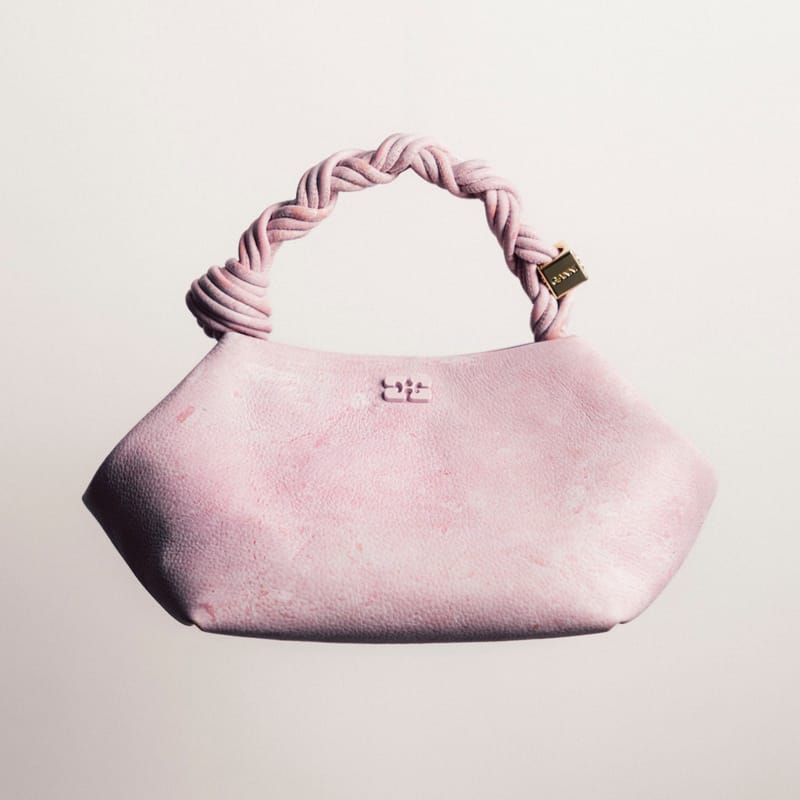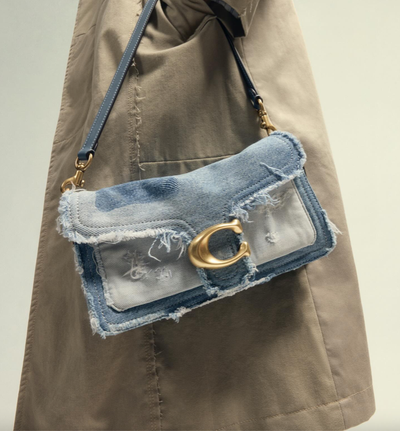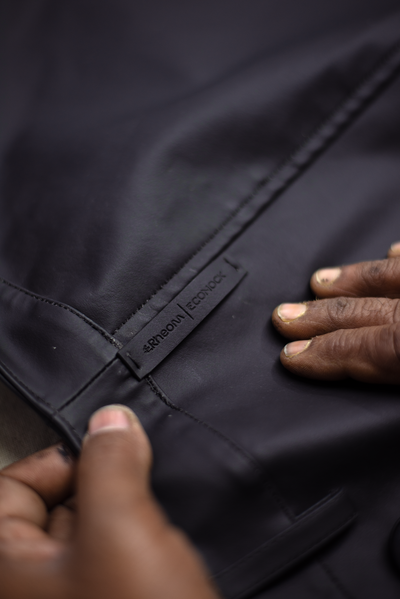Amidst a burgeoning array of eco-friendly leather substitutes, Ganni has unveiled its newest innovation: Celium, a bacteria-grown leather developed by Polybion. In collaboration with the brand, Celium takes centre stage in Ganni's autumn/winter 2024 collection, featuring a crop top, miniskirt, and the iconic Bou bag.
Speaking exclusively to Vogue, Ditte Reffstrup, Ganni's creative director, shared insights into the brand's journey with Celium. "It's been an exciting process collaborating with Celium from the outset," she remarked from her Copenhagen residence. The production of Celium involves feeding industrial fruit waste to specialized bacteria, resulting in a viscous substance later processed at a tannery. The final material showcases a unique waxy texture and marbled surface, ideal for traditional leather applications.
Nicolaj Reffstrup, Ganni's founder, underscored the distinction between Celium and conventional leather, emphasizing the material's innovative potential. "It's not about comparing Celium to leather; it's about recognizing its promise as a game-changing material," he asserted. Unlike many leather alternatives, Celium is inherently plastic-free, although brands may opt to augment its durability with a PU coating.
From an environmental standpoint, Celium boasts a significantly reduced carbon footprint compared to animal-derived leather. Axel Gómez-Ortigoza, CEO and co-founder of Polybion, elaborated on the sustainability credentials of Celium. "Our manufacturing facility operates entirely on solar power, utilizing waste streams that would otherwise pollute landfills," he explained. Initial assessments suggest that Celium emits less than 10 per cent of the carbon emissions associated with traditional cow leather and could potentially achieve carbon negativity.
Ganni's commitment to sustainability prompted the discontinuation of virgin leather in its collections last year, despite the popularity of leather items like boots and bags. "We recognize the imperative to embrace sustainable alternatives to reduce our carbon footprint," said Nicolaj Reffstrup. Ganni currently incorporates a range of eco-conscious materials, including recycled leather, Vegea, Ohoskin, and Mirum.
With the commercial launch of Celium slated for autumn, Ganni's collaboration with Polybion heralds a new era of environmentally conscious fashion, demonstrating that style and sustainability can seamlessly coexist.






